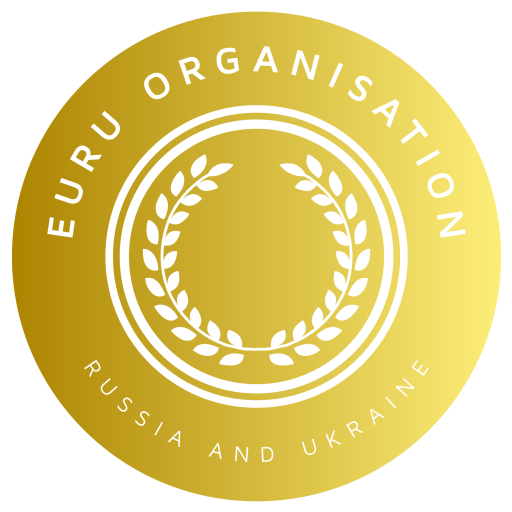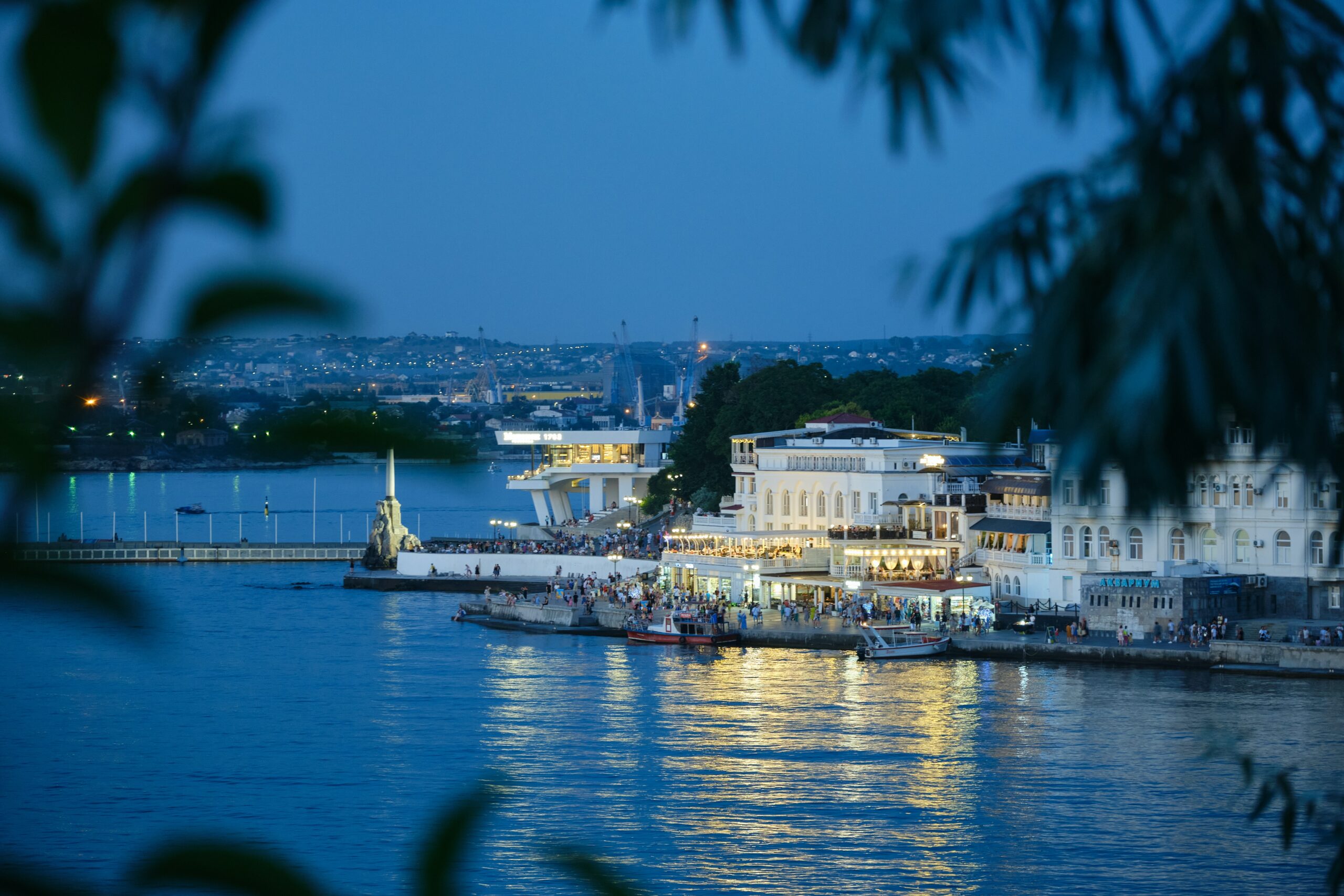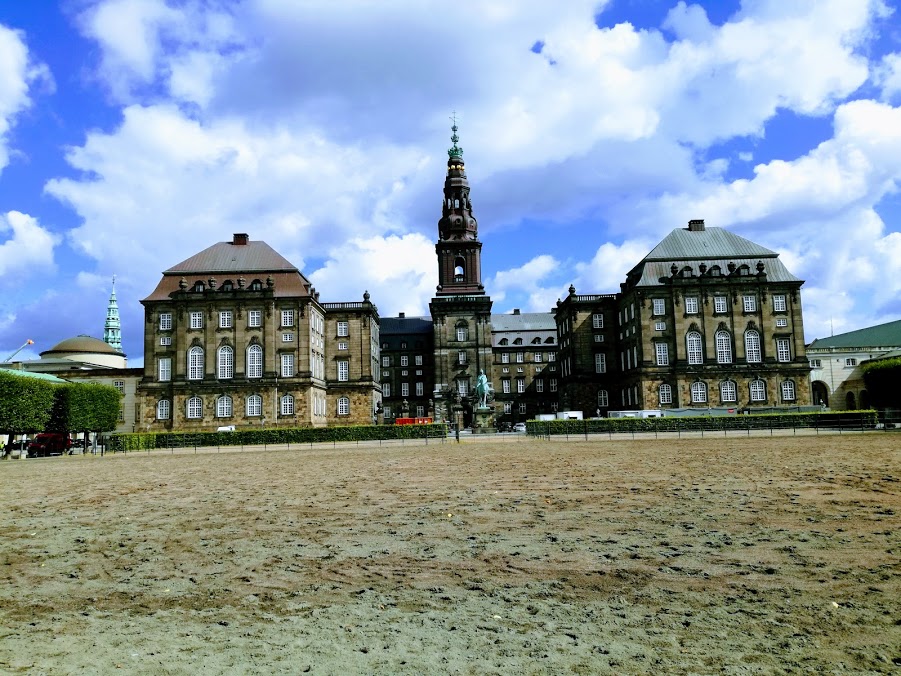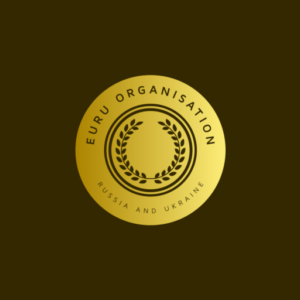As we write on Boxing Day and peace has settled over the Christian world, there is time for reflection and contemplation. Even though we also think about the people suffering from war and conflicts around the world, here in Europe, our thoughts are also focused on the conditions of the many millions of Ukrainians and Russians suffering from the conflict between Russia and Ukraine and the battles being fought on the battlefield.
Recently, we have heard a lot about Russia wanting to conquer large parts of the former Soviet Union and that Russia is conducting hybrid warfare and has an imperialist mindset. Maybe it’s true, and maybe it’s completely wrong. A well-known Danish diplomat has said that he does not believe that Russia wants to subjugate the Baltic countries.
Could it be that if we changed the basis for our analysis, we could come up with completely different solutions to the conflict between Russia and the rest of Europe and the USA?
Given the current geopolitical situation, we obviously need to rearm and spend 3-5% of GDP on defense.
When it comes to Ukraine, it is clear that only the Ukrainian government and the Ukrainian people determine how they will negotiate and enter into a future peace agreement with Russia. Ukraine is an independent, sovereign country that fully determines its defense and trade policies.
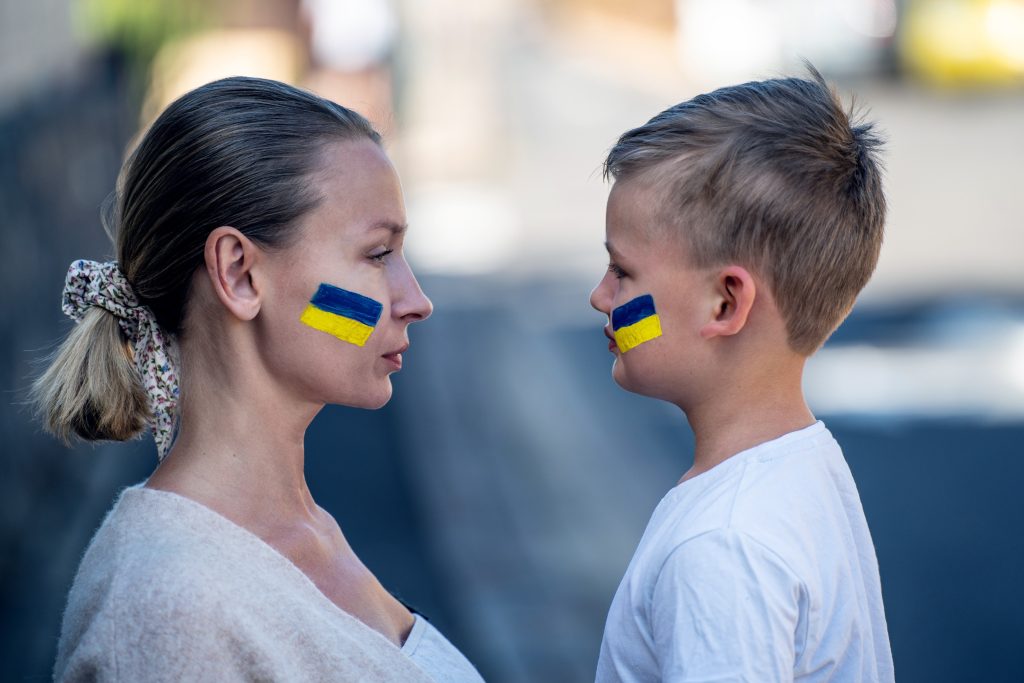
The USA, along with many other countries, has played a major role in Ukraine’s defense struggle, and it is a strong alliance that will continue to support the Ukrainian government and people.
When it comes to Russia and how the upcoming peace negotiations should proceed, it might be possible to outline some factors that may underlie the current stalemate and the terrible battles being fought on Ukrainian soil.
As I have pointed out before, Russia in the early 1990s wanted to cooperate closely with NATO and the EU, and it is clear that many European leaders and foreign ministers assured Russia that NATO would not expand eastward if Germany were reunited. Regardless of what historians and diplomats say today and refer to sources and which specific agreements were signed, it is a fact that several leaders and foreign ministers, including conversations between Secretary of State James Baker, President Mikhail Gorbachev, and Foreign Minister Eduard Shevardnadze at the Kremlin on February 9, 1990. The conversation primarily focused on German unification and NATO’s presence in Europe. Baker assured Gorbachev that NATO would not expand eastward if Germany unified and remained part of NATO. This assurance was a key part of the discussions during the end of the Cold War.
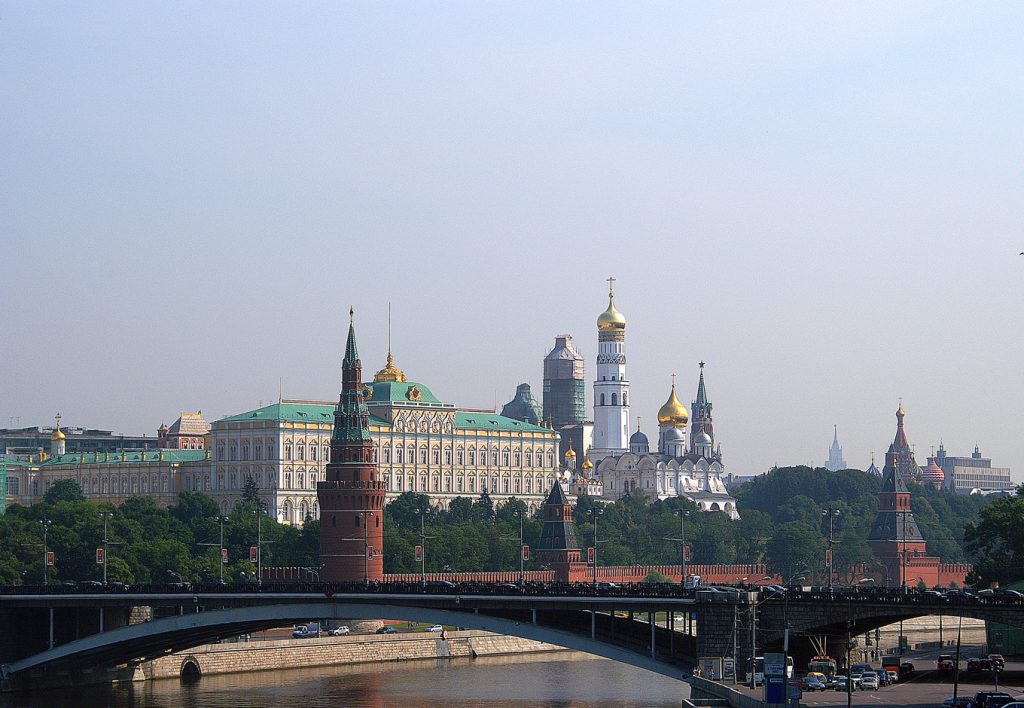
Notes from the Ottawa Open Skies conference on February 13, 1990: Here, Baker reiterated his assurance to Shevardnadze that NATO would not expand its jurisdiction eastward. James Baker’s letters to Helmut Kohl: These letters, published in 1998, also confirm assurances about NATO’s future position.
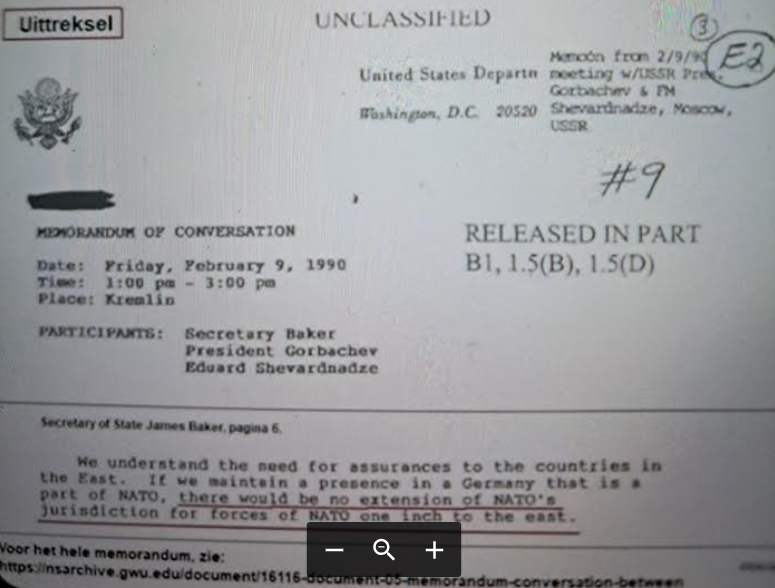
Other Western leaders: Documents from leaders like George H.W. Bush, Hans-Dietrich Genscher, Helmut Kohl, François Mitterrand, Margaret Thatcher, Douglas Hurd, John Major, and NATO Secretary General Manfred Wörner show similar security assurances. These documents support the historical context and confirm that assurances were given to the Soviet Union about NATO’s future position. (I am not a history professor and cannot examine these sources, but from the literature I have reviewed, there is no doubt that the Russian government was in good faith, and when they claim today that they received such assurances, we must assume it is true.)
We must also remember that after the dissolution of the Soviet Union, the economic situation in Russia was unsatisfactory, and therefore Russia entered into various agreements to improve its economy, which succeeded in increasing growth and prosperity.
I believe this hypothesis is closer to reality than the expansionist and warlike theories many put forward these days. When power in a country is concentrated in very few people, it is what they feel and think that shapes the country’s policies, and when they have held power for a long time, it is the historical and concrete events they have experienced that come to characterize their policies.
If we in the “West” have behaved arrogantly, know-it-all, condescending, and showed a lack of propriety in relation to another nation, one can expect a strong counter-reaction.
I believe that the situation we are in now is the result of a policy that has not been based on decency or propriety and a policy that has not been inclusive but rather exclusive, and now we see the result. Moreover, there are latent factors in the former Soviet countries that we have not been able to influence, such as a more nationalist resurgence and a de-prioritization of the Russian language, culture, and the Russian church.
Some of these factors are fully within the rights of the countries to prioritize, but when Russians become a minority and their status in the former Soviet republics is reduced, it can be intolerable for the leadership in Moscow to see many millions of Russians outside their “own country.” In the EU, there are clear guidelines for minority rights, and are these followed?
This leads to the upcoming peace negotiations, and if we follow my hypothesis and we want peace and stability in Europe, we must proceed differently. As you all know, we must understand Russia’s leaders and people in the country, and as I have pointed out before, Russians also want to live in harmony with the rest of Europe.
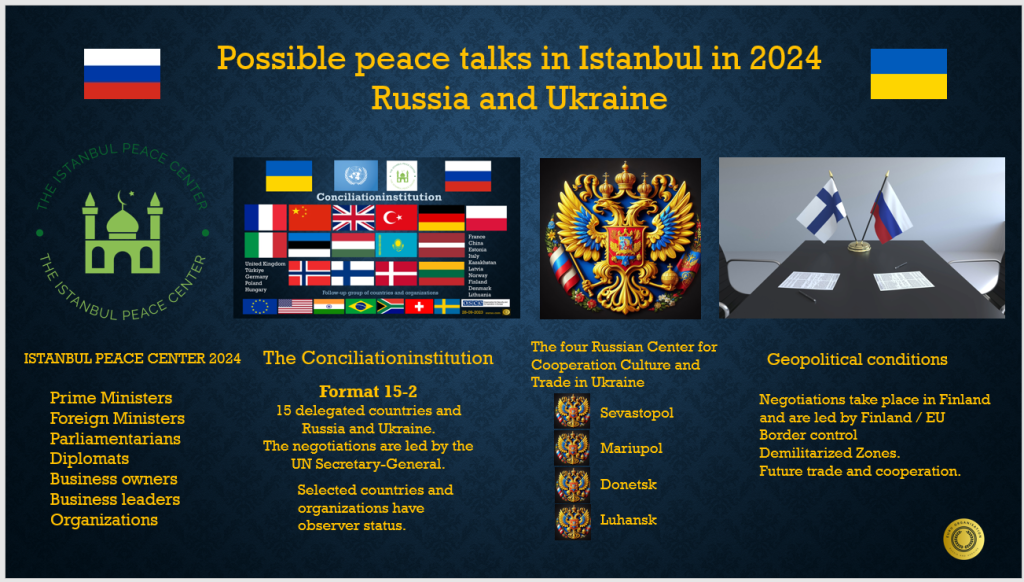
First, a negotiator must be found. It does not seem that Ukraine is as pleased with the UN Secretary-General as they once were. Therefore, he could appoint a well-known and skilled diplomat who knows the situation thoroughly, namely the former German Chancellor Angela Merkel.
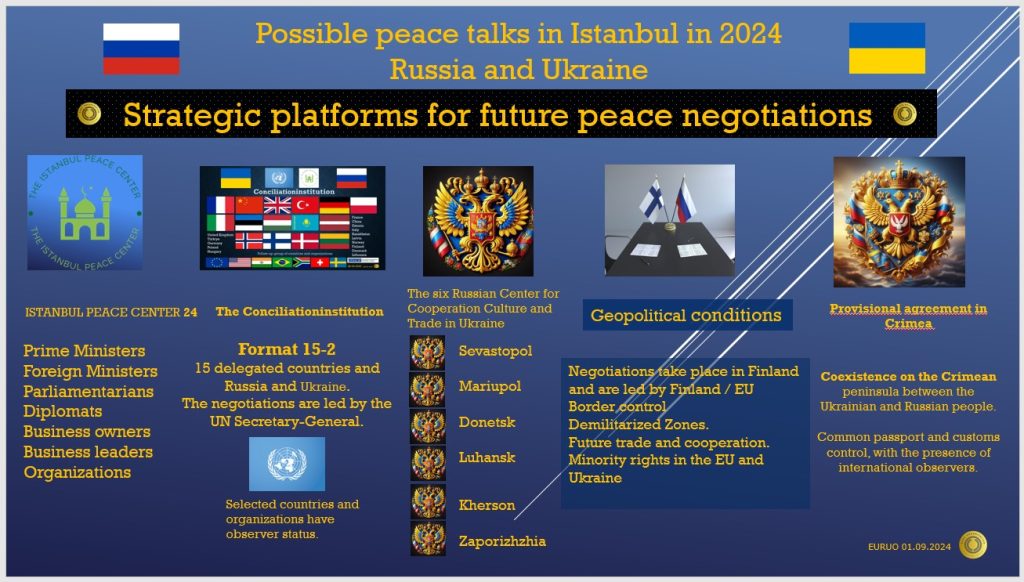
As I have outlined before, Finland/EU should conduct negotiations on demilitarized zones in Europe. A new EU-NATO-Russia council should be established to prioritize future trade and defense agreements. Future peace negotiations can take place in a neutral location, for example, Istanbul.
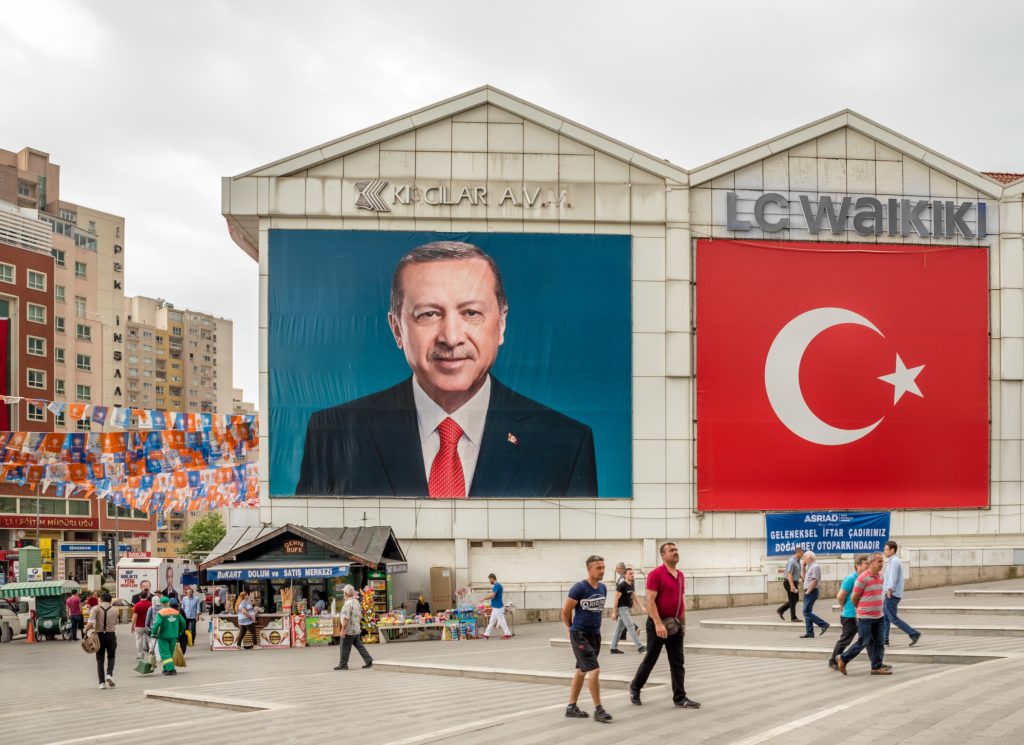
The Istanbul Peace Center should be established where all countries, organizations, and companies wishing to participate can. They would work on plans for peace and the rebuilding of Ukraine. Additionally, the specific peace negotiations could take place in The Conciliation Institution under the leadership of Angela Merkel, also located in Istanbul.
On the Crimean Peninsula, a solution must be found so that coexistence between Ukrainians and Russians is established. The area must be under UN supervision until a final solution is found.
Here are some of the peace solutions developed after 2022, with many points, but some essential elements are highlighted as key components of a possible draft:
- Security guarantees for Ukraine.
- Rebuilding of Ukraine.
- Financing of the rebuilding.
- No foreign troops on Ukrainian soil in peacetime/Reestablishment of the Ukrainian naval base on Crimea.
- Exchange of prisoners and resettlement of refugees.
- Coexistence on the Crimean Peninsula, governed by the UN during a transitional period.
- Extended autonomy for Donetsk and Luhansk within Ukraine’s borders.
- Russia leases the naval base in Sevastopol until 2044.
- Russia establishes six centers for Trade and Culture Cooperation in Ukraine.
- Normal trade with Russia is established.
- Frozen assets are released.
- Energy cooperation between Russia, Europe, and Ukraine is reestablished.
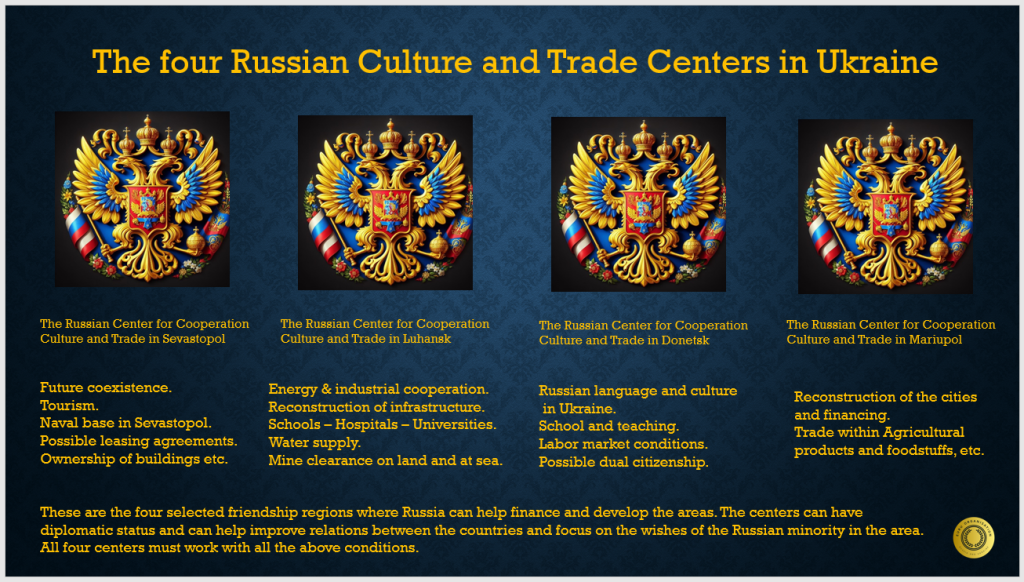
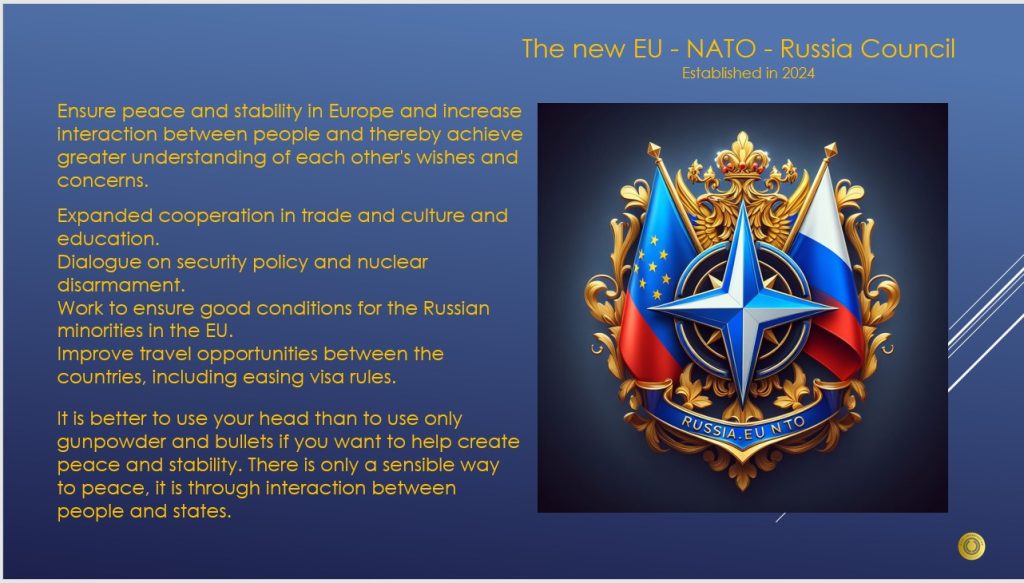
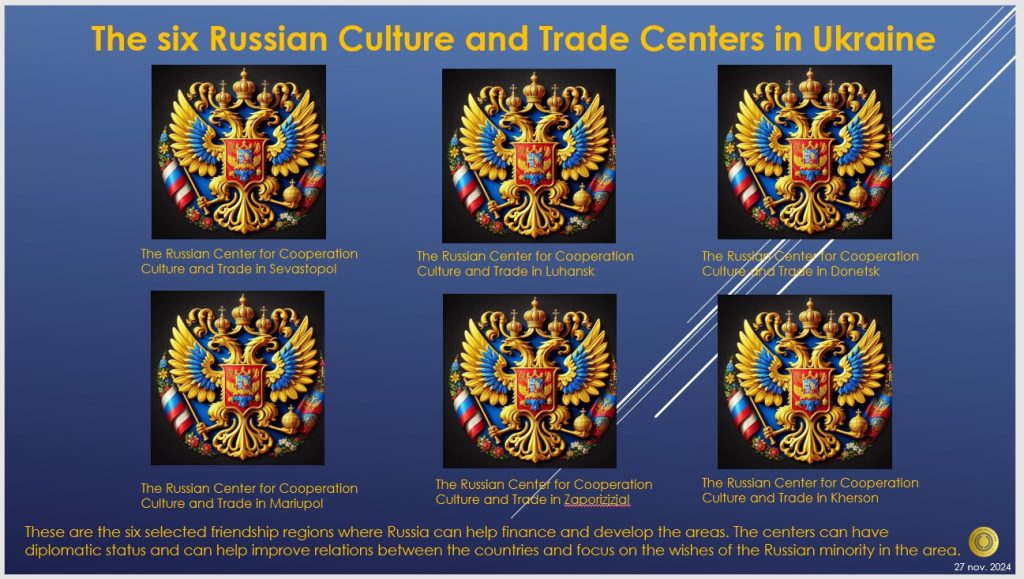
Both countries must have exit strategies to extricate themselves from the conflict, initiate reconstruction, stabilize their economies, and prevent further loss of life in this largely incomprehensible conflict.
One of the proposals, beyond those already mentioned, could be that Russia appoint special Russian governors in Ukraine for Culture & Trade in the regions of Luhansk, Donetsk, Zaporizhzhia, and Kherson. These governors would have diplomatic status and could function as ambassadors to further Russian culture and language in the areas where many Russians live in Ukraine.
I believe this is an interesting idea, although from Ukraine’s perspective, it might be seen as a very far-reaching proposal.
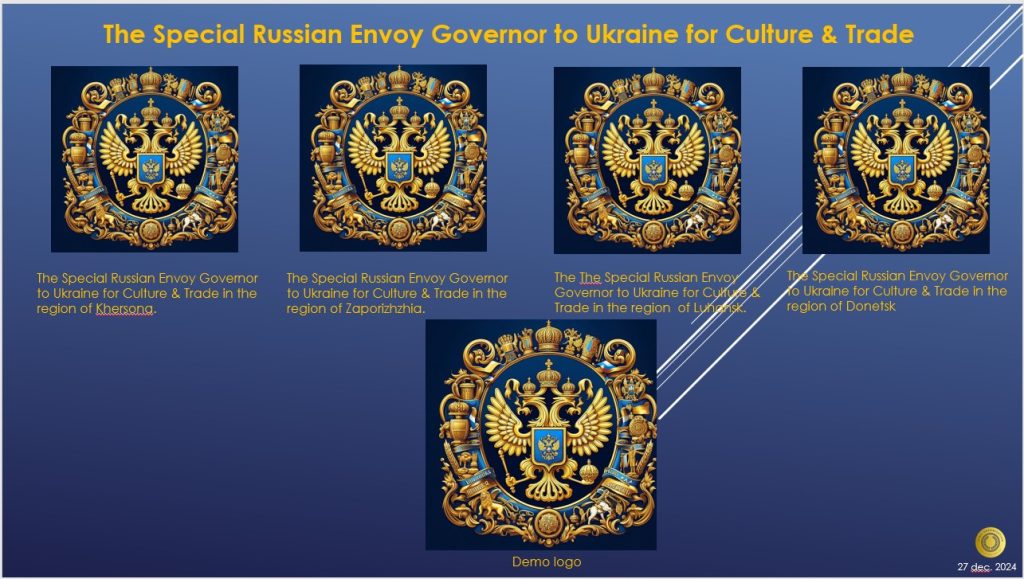
If Russia were to appoint special Russian governors in the regions of Luhansk, Donetsk, Zaporizhzhia, and Kherson with diplomatic status, they could serve as official representatives of Russia and work to preserve and promote Russian culture and language in these areas.
They could, for example:
- Organize cultural events and exhibitions to promote Russian culture.
- Work with local schools and educational institutions to ensure the teaching of Russian language and history.
- Facilitate collaborations between Russian and local artists, musicians, and writers.
- Create connections between Russian and local communities and businesses to strengthen economic trade.
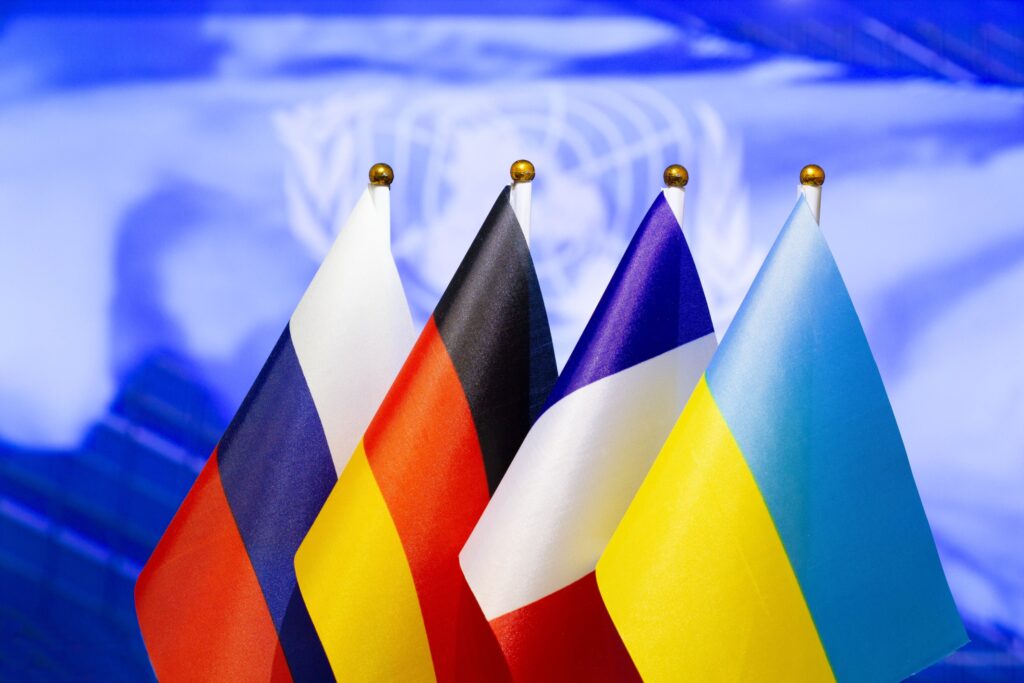
As I sit here concluding this article, I read in the Danish newspaper b.dk that a Russian historian claims it is the Russian intelligence service that holds power in the country, and they have an old plan for a new world order, which is their ultimate goal. Regardless of who holds power in the country, it is necessary to present negotiation proposals and solutions that can save the Ukrainian people and create a brighter future for both the Russian and Ukrainian people. The current situation is both incomprehensible and intolerable for Europe and the global community as a whole.




